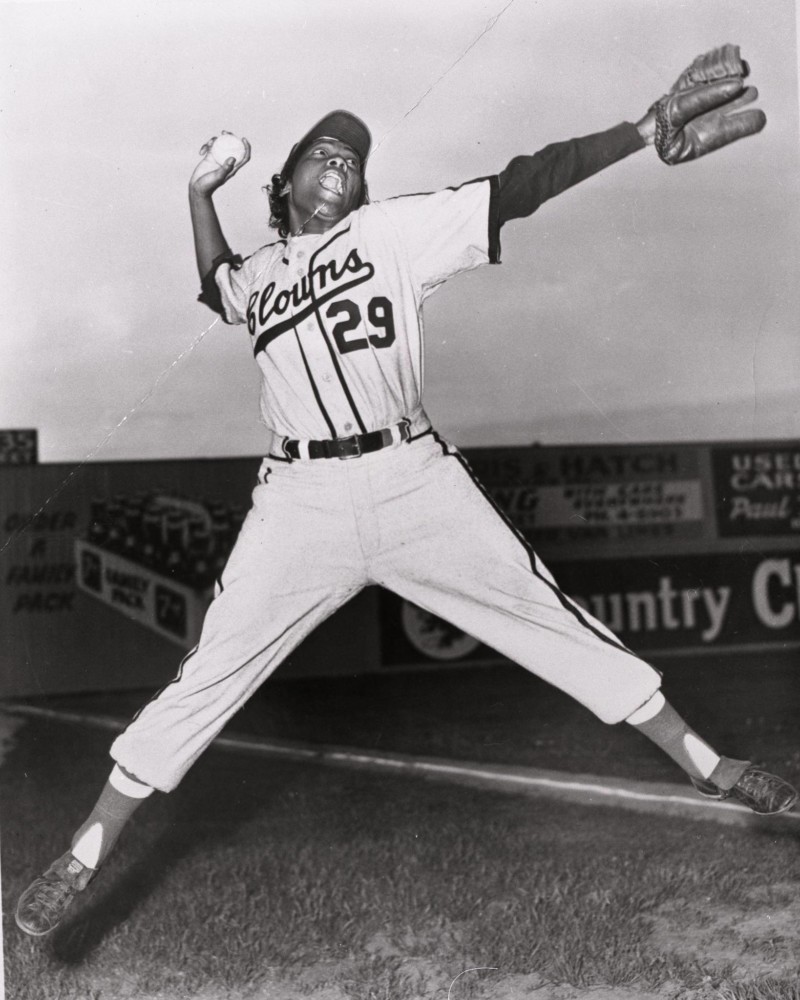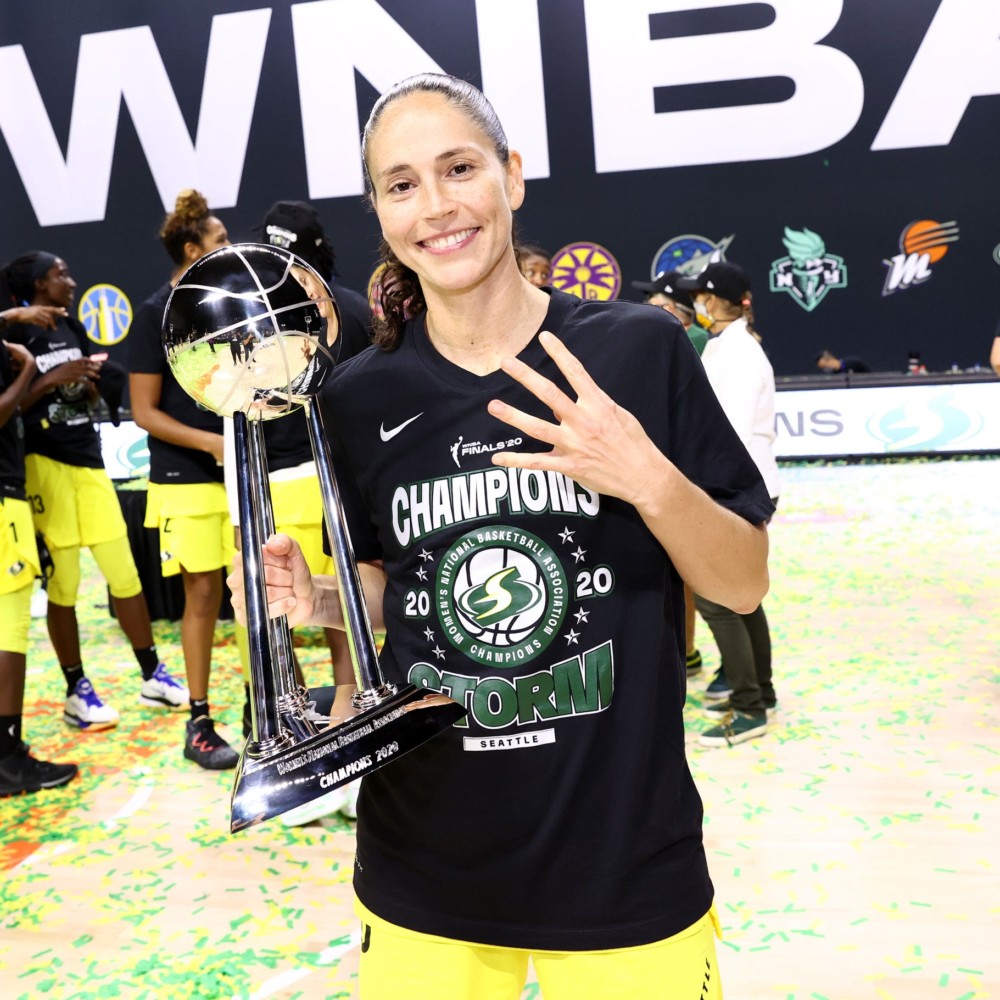By Ann Killion
San Francisco Chronicle
WWR Article Summary (tl;dr) Ann Killion introduces us to Toni Stone, a groundbreaking African American female athlete who played professional baseball in the 1950’s. A new theatrical production is celebrating her life.
San Francisco
An African American in her 30s becomes the first woman to play in men’s professional baseball, competing in the Negro Leagues in the early 1950s. The player she replaced? Hank Aaron.
But that’s the true saga of Toni Stone, whose story of shattering boundaries and channeling determination is the subject of a new ACT production. “Toni Stone” premieres at the Geary Theater on Wednesday and runs through the end of the month.
Stone is not the stuff of fiction, but of buried, overlooked history. And her story is achingly timely. The play comes to San Francisco in the midst of a conversation about women knocking down barriers in sports: women like new Giants coach Alyssa Nakken and 49ers assistant coach Katie Sowers.
“All those things she was dealing with remain so strikingly unresolved,” said playwright Lydia Diamond. “The sexism, the racism. She was dealing with Jim Crow laws and sexual discrimination; she dealt with all that yet was able to accomplish so much.”
Several years ago, Diamond was approached by producer Samantha Barrie and director Pam MacKinnon to see if she could bring Stone’s life to the stage. Diamond worked source information, most significantly with a biography of Stone, “Curveball,” written by Martha Ackmann. And then she brought Stone to life. The play, which debuted off-Broadway last year, won awards as the best new play of the year.
“I’ve been writing about race and class and gender for 25 years and people always say that (her work) feels timely for the era we’re in, in America,” Diamond said. “It’s eerie that it always seems true.”
Stone, born in 1921 in West Virginia and raised in St. Paul, Minn., played baseball with boys and men all her life, starting in her church league and through the minor leagues, including with the San Francisco Sea Lions.
Stone traveled here during World War II to see her younger sister. That’s when Stone met her future husband, 40 years her senior, known as “Pa.” She played for the Sea Lions in 1949, though reportedly left that team after a pay dispute, and went on to play in the minors in New Orleans for three seasons.
In 1953, she made history, signing a contract with the Indianapolis Clowns. With the integration of Major League Baseball, beginning with Jackie Robinson’s signing by the Brooklyn Dodgers in 1947, the Negro Leagues were in decline. The owner of the Clowns, Syd Pollock, had lost his best prospect, the teenage Aaron, to the Boston Braves. Signing Stone to take Aaron’s position gave the Clowns a marketing novelty.
But Stone wasn’t just a ploy. She was tough and fierce — she refused to wear a skirt or shorts, when it was suggested — and could play. She batted .243 for the season. Her proudest accomplishment was getting a hit off legendary pitcher Satchel Paige in an exhibition game. Though her age was listed as 22, she was actually 32 when she played for the Clowns. Two other women, Connie Morgan and Mamie Johnson, followed in her footsteps and also played for the Clowns.
The next year, the Kansas City Monarchs bought her contract, but Stone retired after the 1954 season due to a lack of playing time. She returned to the Bay Area, settling in West Oakland with her husband and living a quiet life.
“She didn’t talk too much about her baseball life,” said her niece, Maria Barlow, who lives in Fairfield. “But she was the first woman to do a lot of things. She wouldn’t consider herself a feminist, but she knew that she wanted more in life and she was fighting for it. She stood up to people, like the white owner, and fought for her pay. She stood up for herself. I saw the letters that she wrote. And she did it all by herself. She didn’t have anyone helping her or clearing the path for her.
“My aunt was one of the strongest women I’ve ever known.”
She always loved baseball. In Oakland, where she worked as a home health care worker, she continued to play in local leagues. Her closest friends — all male — would come over and sit in her garage to listen to ballgames, drink some cocktails and talk sports.
She rode her bike around Oakland into her 70s. She was always active.
“She was an athlete, you could see it as soon as you met her,” said Judy Yaeger-Jones, a Minnesota historian who befriended Stone after learning of her story in the early 1970s.
In June 1975, Stone threw out the first pitch at a Giants game at Candlestick Park. The Giants will be doing cross-promotions with the production of “Toni Stone,” including ticket giveaways and a matinee performance for Junior Giants members.
Stone spent the last 40 years of her life in the East Bay. She died in an Alameda nursing home in 1996 at age 75.
“I hope people recognize her story and wonder how many other stories like hers we should know,” said director MacKinnon.
“This is a story about a person who knew who she was. And demanded the world catch up to that.”
___
Distributed by Tribune Content Agency, LLC.
















































































































































































































































































































































































